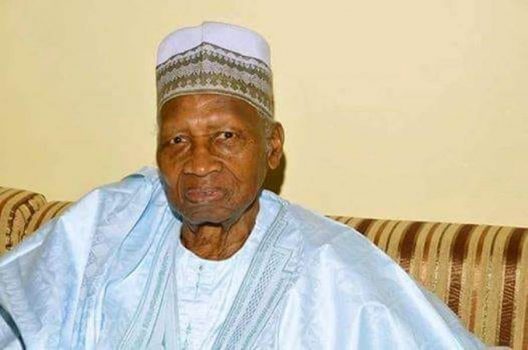 The first president of The Gambia, the man who led the country to political independence from Britain in 1956, Dawda Jawara has died. He passed away on Tuesday at the age of 95.
The first president of The Gambia, the man who led the country to political independence from Britain in 1956, Dawda Jawara has died. He passed away on Tuesday at the age of 95.
In a statement posted on its official Twitter page on Wednesday, the Gambian government announced that a state funeral would be held for Jawara on Thursday.
“In honour of his enduring legacy, President Barrow has ordered that the former president be accorded a befitting state funeral and that flags at all public institutions fly at half-mast.
“Sir Dawda has lived a life that epitomizes peace, tolerance, respect, and patriotism. His time as president has put the country on the path of development at both human and institutional standards.
“His legacy as the father of the nation shall forever live on,” the tweet read. President Barrow described Jawara’s death as a great loss to the country in particular and humanity in general.
Jawara, a Glasgow-trained veterinary doctor led the former British colony to independence on February 18, 1965. He ruled the country until July 1994 when his reign was brought to an end by a bloodless military coup led by Yahya Jammeh.
Born in 1924 into a Muslim family in central Barajally where his father was a tradesman, Jawara began his working life as a veterinarian.
It was not until 1960 that he delved into politics, joining the Protectorate People’s Party while the country was still under British rule.
His party, which later changed its name to the People Progressive Party (PPP) won the elections in 1962 and he became the country’s Prime Minister.
That was the post Jawara held until The Gambia gained its independence in 1965, ending British colonial rule which began in 1888. It was however not until 1970 that he assumed the post of the country’s first president.
Jawara is also remembered for resisting post-independence pressure to become part of neighbouring Senegal, which surrounds the whole country with the exception of its Atlantic coastline.
Following his ouster in 1994, Jawara sought refuge in Britain where he lived with his family until 2002 when he returned home after President Jammeh granted him amnesty and returned his assets to him.
While in power, his regime was considered to be one of the most democratic in the entire African continent.

Time Magazine Names AI Visionaries ‘Person of the Year’
Machado Vows Return To Venezuela After Nobel Peace Prize Win
Benin President Hails Military for Foiling Coup, Vows Justice
Trump Administration Halts Immigration Applications From 19 “High-Risk” Countries